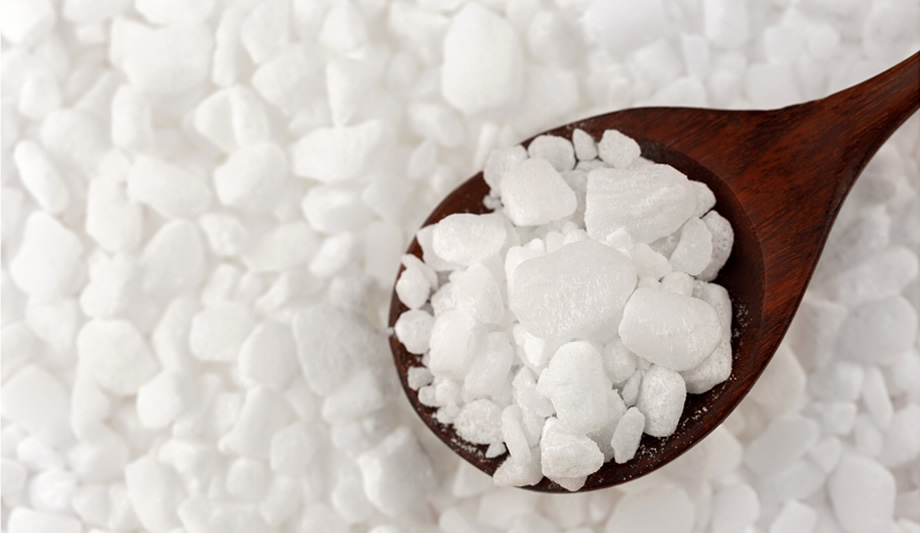6 Different Types Of Magnesium & What They’re Used For
Magnesium is one of the most popular products when it comes to treating different conditions, preventing diseases, and just improving the overall lifestyle. When we think of this mineral, we usually believe that there is just one type of it and that we can just take it in any form if we are feeling we have a deficiency of the mineral in our bodies, or if we want to get additional help with a condition we are living with.
However, this supplement is much more versatile than that, and there are a variety of different options that you can choose from to target your specific case. In this article, we are going to tell you more about the different types of magnesium, and we will tell you what they are used for. Keep on reading to learn some new and interesting information about the supplements, why you should incorporate them in your diet, and how it is going to help you both short and long term.
1. Oxide

The first type we are going to talk about is magnesium oxide, and this type is slightly different than the rest. It is a combination of the mineral and oxygen, hence the name of it. It is not commonly used to prevent the deficiency of the mineral, but instead, it is helpful when it comes to treating some type of condition.
The substance is white and powdery, and it is most commonly used to prevent or treat migraines. In addition, this can be used to relieve some digestive problems and it has been proved to be useful when it comes to heartburn.
2. Chloride

This combination is said to be the easiest one for your body to process and digest, and it is the one that gets absorbed the fastest in your organism. It is a multi-purpose substance that will help you treat a lot of different issues starting from problems with your bowel movement, up to digestion problems, and it can help if you have any deficiency of the mineral itself.
It comes in many different forms, and even though you can easily find it as a pill, you can also purchase gels and lotions that contain magnesium chloride. Note that some users suggest that the ointments are extremely beneficial for sore muscles and pains, but there is still not enough scientific proof for this benefit.
3. Taurate
This is a blend between the supplement and the amino acid taurate, and this combination has been proven to be useful with a lot of different diseases and conditions. It is most commonly recommended to people that are struggling with issues with their blood pressure and blood sugar, as the main component can help regulate both of them.
In most cases, the blend between the two can also help with dizziness and nausea, even though further research is needed to prove this. Since it is difficult to find out which type is the one that is going to be the best for you, you can click here to find out what type of magnesium is going to be the most beneficial depending on your condition and things that you are trying to achieve.
4. Glycinate

The magnesium glycinate is probably the most popular form of the substance, and probably the one that you are most acquainted with.
This dietary supplement is said to be the most useful for those who are suffering from insomnia or other sleep conditions since it can regulate sleep patterns, it can help you fall asleep faster and easier, and it can prevent you from waking up several times during the night. It is also recommended for those who are living high-stress lives since it can aid in relaxation and stress relief.
In some cases, it has been proven to help those who are suffering from panic attacks, severe stress, depression, and anxiety.
5. Lactate
Magnesium lactate is most commonly used as an additive in the foods that we are eating, but it is also recommended as a supplement for those who need it. It is not too well known to most, as it’s far better known for its property for preserving foods and as a flavoring agent.
Nevertheless, this combination is said to be extremely gentle for your digestive system, and it should not cause any issues like some of the other forms can. It is safe for use for people of all ages, and there are usually no restrictions when it comes to it.
It is commonly used by those who have a magnesium deficiency, but who cannot take the other forms of it because of their stomach issues. This type is another one that can help treat anxiety and stress, but there are more studies needed to be able to prove this.
6. Citrate

The last supplement we are going to talk about is magnesium citrate, and this combination is most commonly found in citrus fruits. As you can imagine, it has a well-known acidic taste and the flavor is good when you take it.
This is another type of supplement that you can find easily both online and in physical stores, and it is one of the most popular types of magnesium. It is the easiest one to be absorbed in your body, and you should not feel any issues or problems with your stomach after taking it.
It has been usually recommended for those who are having any issues with their bowels and those who are experiencing problems with constipation. Nevertheless, there have been studies that proved that citrate is also beneficial for those who are experiencing mental health issues including depression and anxiety.
As you can see, there are a lot of different types of this supplement, and you can choose them depending on your condition and lifestyle. Note that the dosage also depends on the things you want to target, and you should always check to see which combination would be the most beneficial for your specific needs. When it comes to the right dosage, you should talk with your health physician, your pharmacist, or your nutritionist so you know how to properly dose the supplement. There have been no known serious side effects of this mineral, but you should still be cautious when it comes to taking and dosing it.



